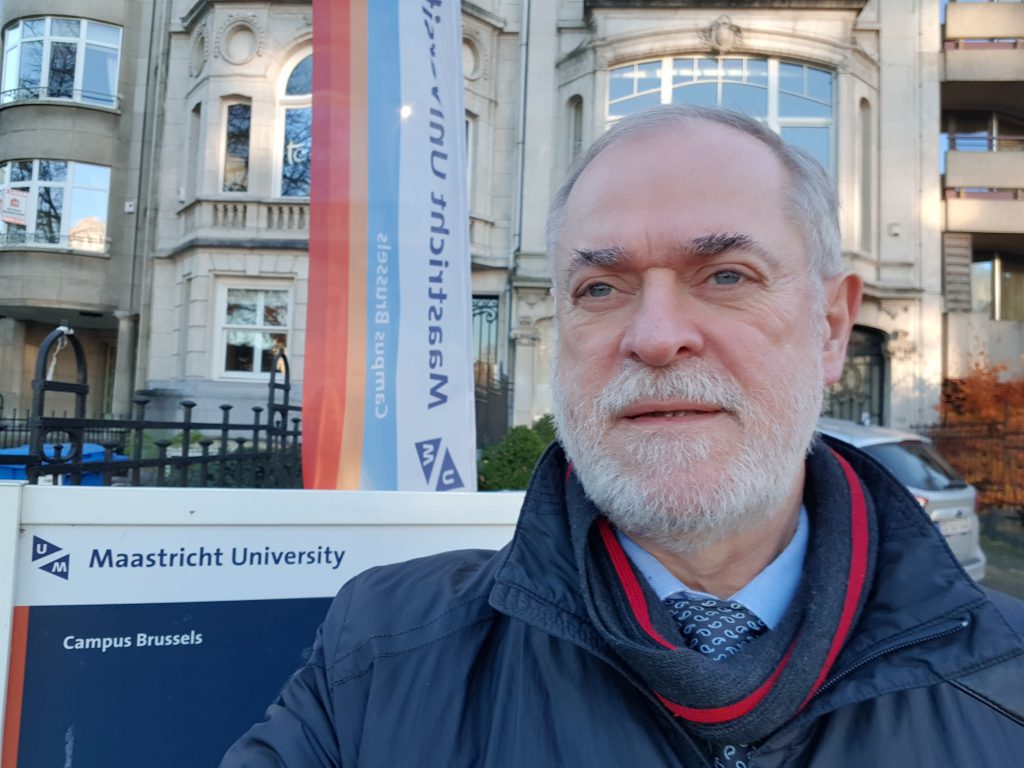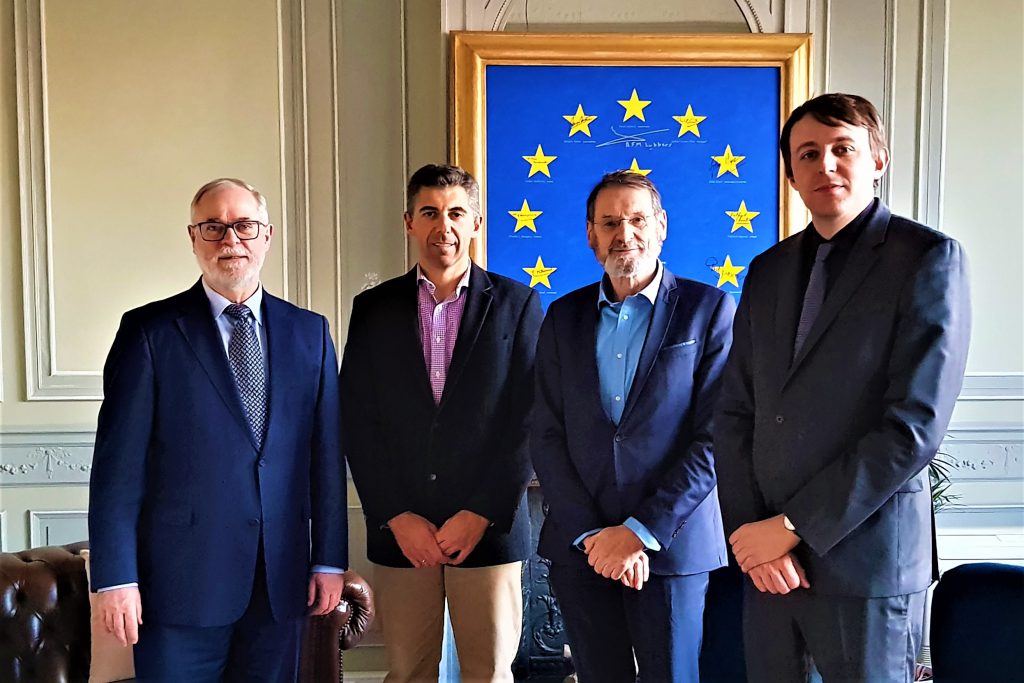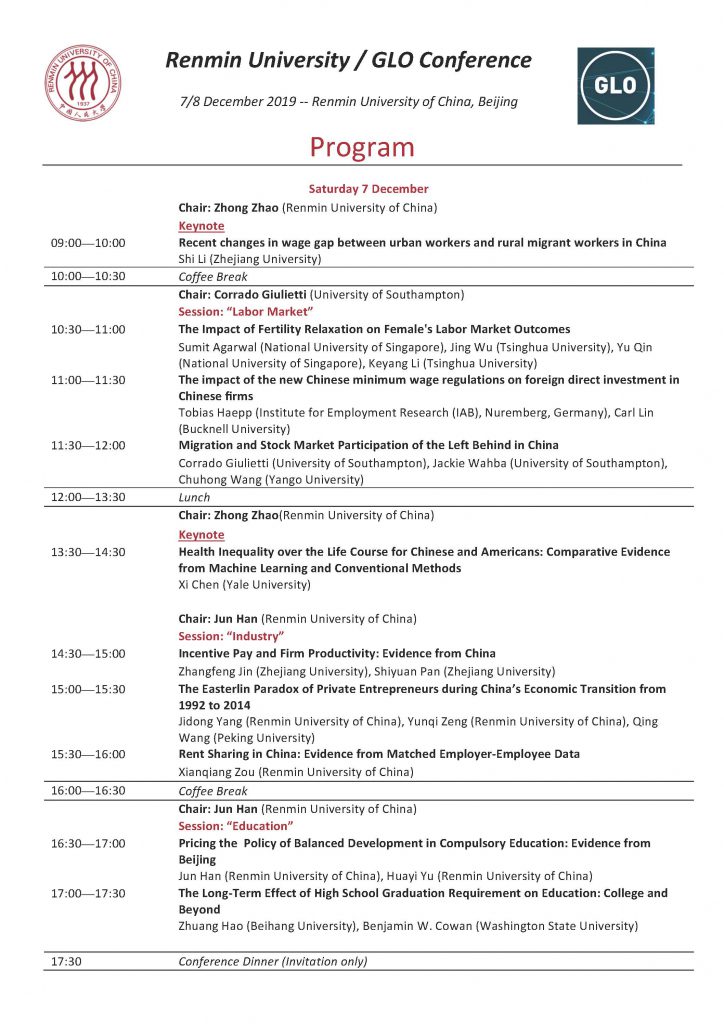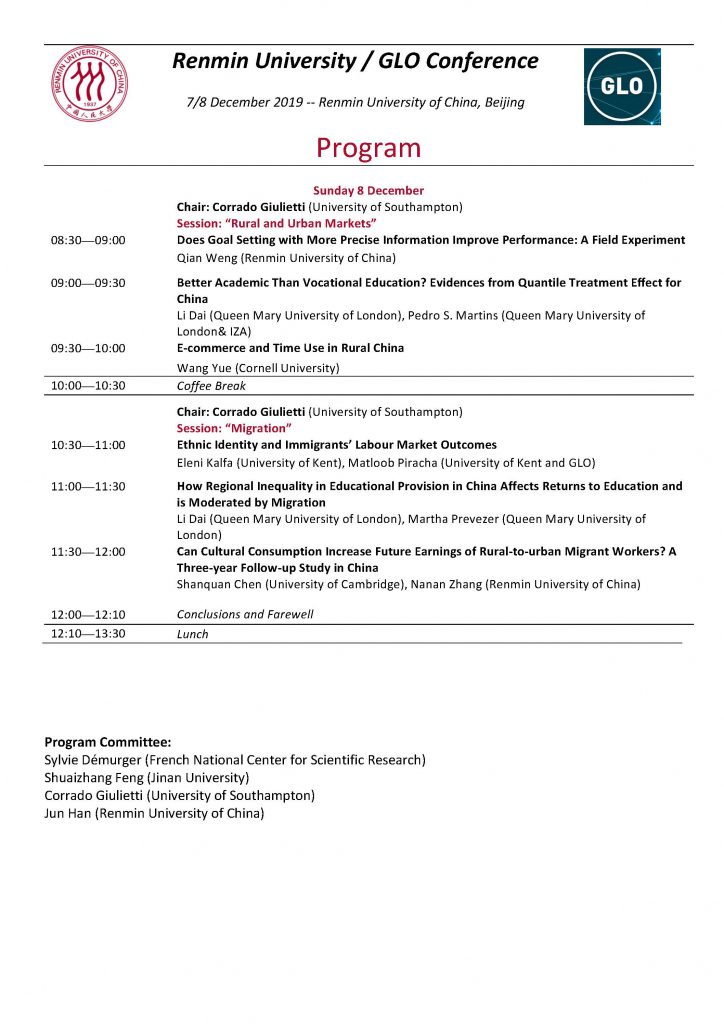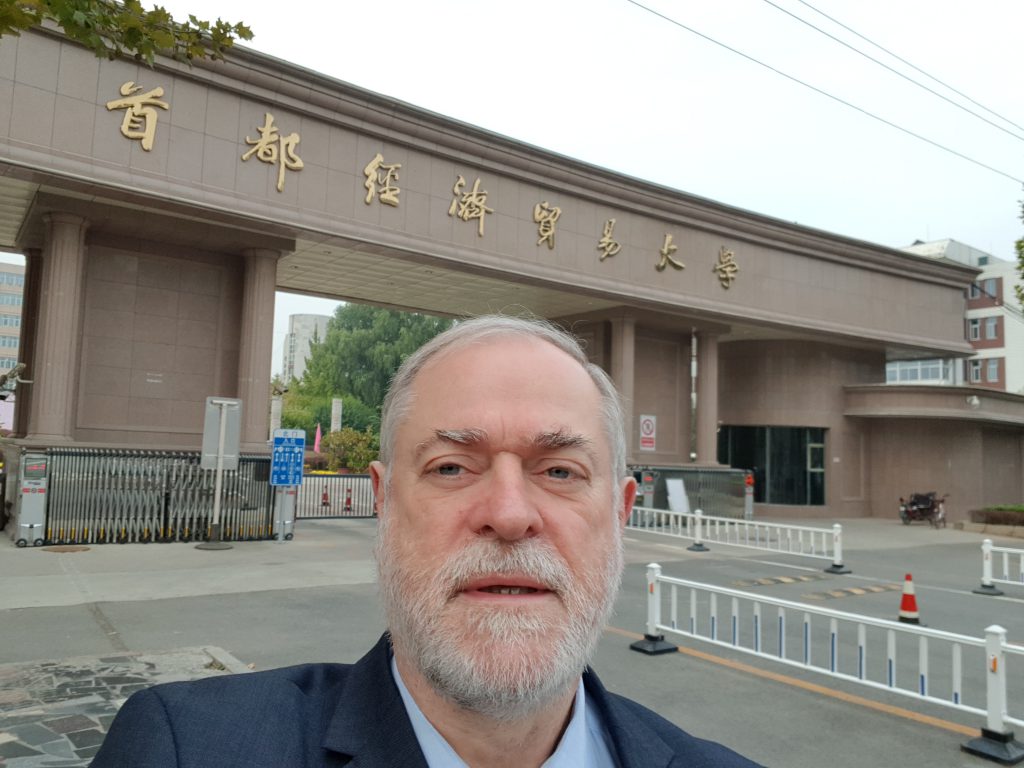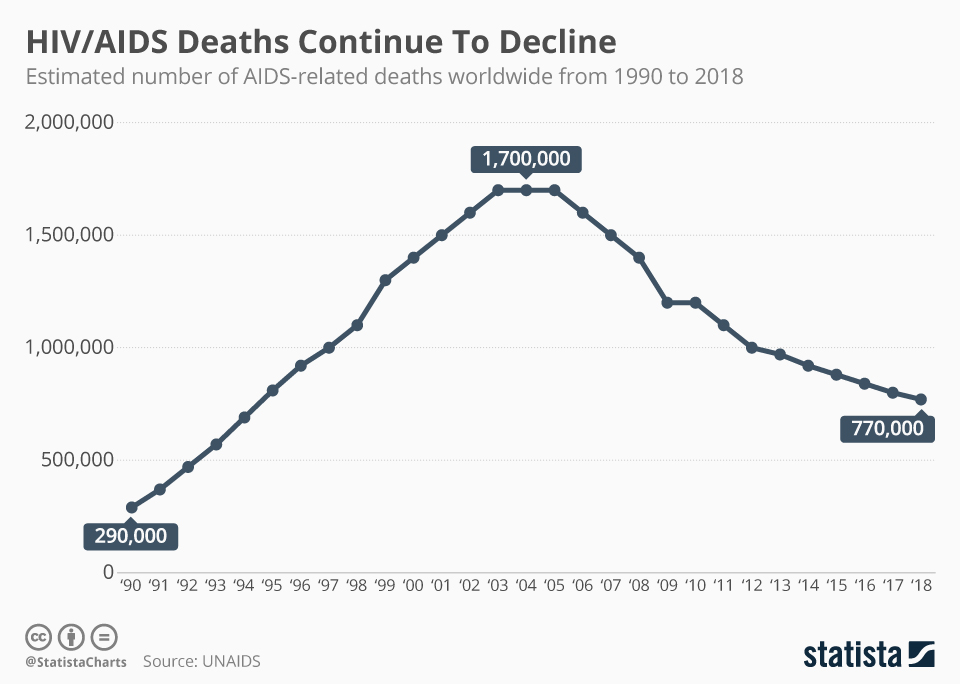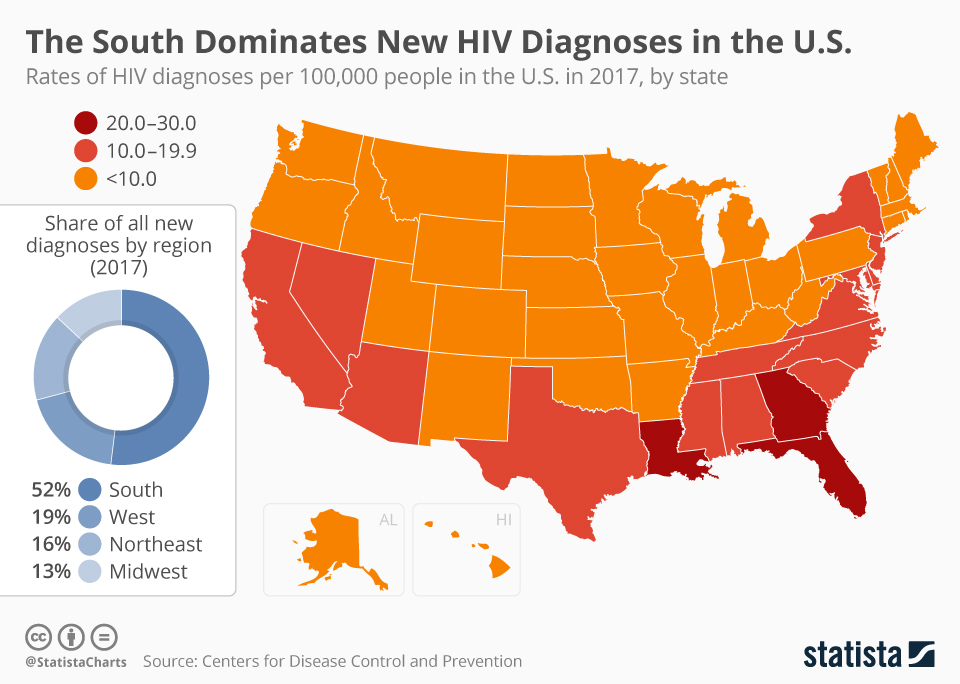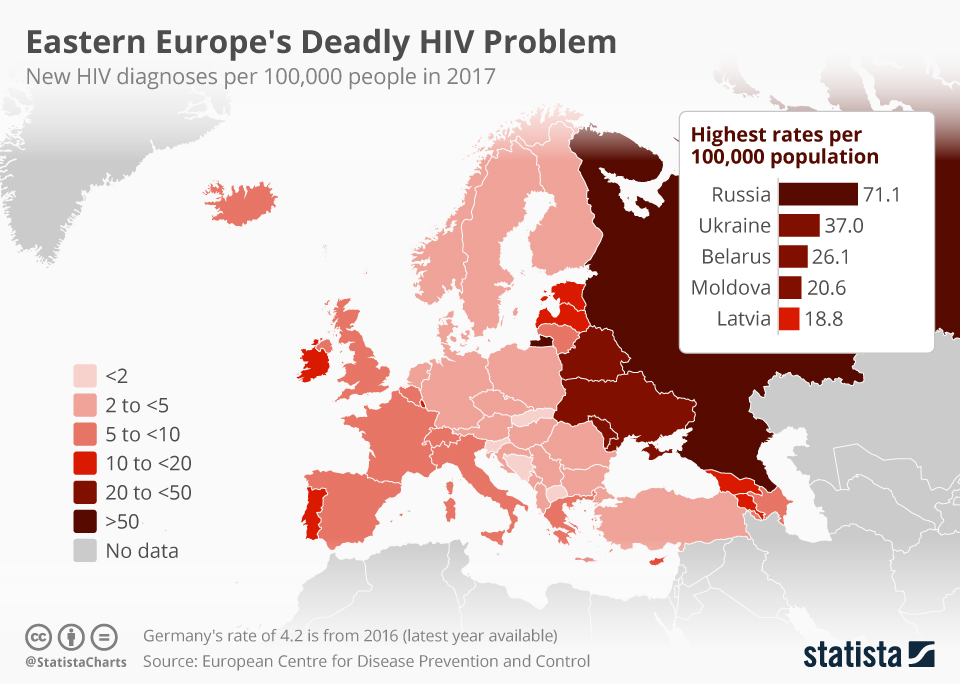The new European Union Commission under the leadership of Ursula von der Leyen started to work on December 1, 2019 with the aim to re-vitalize Europe. On this occasion, GLO President Klaus F. Zimmermann was visiting Brussels on December 3 to prepare a European strategy of his organization.
After a Christmas shopping tour on the Grand Place, he was visiting Bruegel, the economic think tank, to discuss research and policy projects with GLO Fellow Martin Kahanec. Kahanec, who is a Professor at the Central European University (CEU) in Vienna & Budapest and a Mercator Senior Visiting Fellow at Bruegel, acts also the GLO Cluster Lead for EU Mobility.
Zimmermann, a Honorary Professor of Maastricht University and Co-Director POP at UNU-MERIT, was further visiting the Campus Brussels of Maastricht University to participate in a book launch and moderate a respective policy panel. The new book Una segunda oportunidad para Europa (A Second Chance for Europe) calls upon to rethink and reboot the European Union, obviously right in time for the fresh start of Europe, Ursula von der Leyen attempts to organize.
The book is authored by GLO Fellow Jo Ritzen, a Professorial Fellow of UNU-MERIT and its School of Governance. UNU-MERIT is a joint institute of the United Nations University (UNU) and Maastricht University. Ritzen is a former Minister of Education, Culture, and Science of the Netherlands, served in the Dutch Cabinet at the Maastricht Treaty, a former Vice President of the World Bank and former President of Maastricht University.
The book was presented in Spanish by Salvador Pérez-Moreno, Professor of Economic Policy, University of Malaga, and discussed in Spanish by Javier López, Member of the European Parliament. Zimmermann moderated also the panel discussion between Jo Ritzen, Salvador Pérez-Moreno and Javier López.
The video of this panel event is available HERE.
Group photo below from the right: López, Ritzen, Pérez-Moreno and Zimmermann. MORE DETAILS.
Ends;



